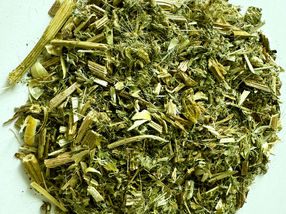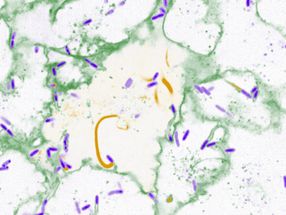Naturally-occurring, Plant-based Compounds Lead Researchers Toward New Treatments for Type 2 Diabetes
Chicago. Scientists from MitoChroma(R) Research, Inc., a privately-held pharmaceutical development company, recently announced a patent-pending discovery that could complement current medical management modalities for Type 2 Diabetes, insulin resistance and the set of related conditions called "Metabolic Syndrome."
After a pilot human study using edible plant extracts yielded encouraging results in reducing blood glucose, glucosylated hemoglobin, lipids and triglycerides, the MitoChroma(R) group began working to isolate and characterize the active compounds from these extracts for potential use in new treatments for metabolic diseases.
MitoChroma(R) scientists are discovering that the active compounds are members of a class of safe, small molecules that, until now, had not been considered for use in Type 2 Diabetes.
Subsequent preliminary investigations of possible methods of action of the MitoChroma(R) compounds have exhibited indirect stimulation of AMPK and AKT (pathways currently thought to be key players in maintenance of proper function of glucose metabolism, management of healthy blood glucose levels, and the control of glucose tolerance). These observations imply a possible involvement of GLUT4 translocation in the mechanism of increased glucose transport into skeletal muscles. Additionally, currently ongoing investigations have indicated inhibition of gluconeogenesis, the production of glucose in the liver.
Type 2 Diabetes and the related constellation of symptoms popularly referred to as "Syndrome X" (elevated triglycerides, blood glucose, lipids and blood pressure accompanied by insulin resistance and glucose intolerance) is reaching near-epidemic proportions as the effects of the Western diet take a toll on an aging population. Current estimates indicate that approximately 18 million Americans are affected. Experts predict that the number of Americans diagnosed with diabetes will soar by 165% during the next 50 years. Diabetes and insulin resistance are known causes of heart disease, kidney failure and loss of sight.
Because currently used anti-diabetic pharmaceuticals have been often associated with undesirable side-effects and high maintenance expense, the use of these more natural, plant-based compounds could provide fertile ground for improved long term, affordable management of Type 2 Diabetes, insulin resistance and associated disorders.
Most read news
Topics
Organizations
Other news from the department science

Get the life science industry in your inbox
From now on, don't miss a thing: Our newsletter for biotechnology, pharma and life sciences brings you up to date every Tuesday and Thursday. The latest industry news, product highlights and innovations - compact and easy to understand in your inbox. Researched by us so you don't have to.























































